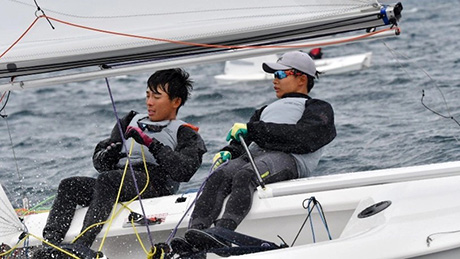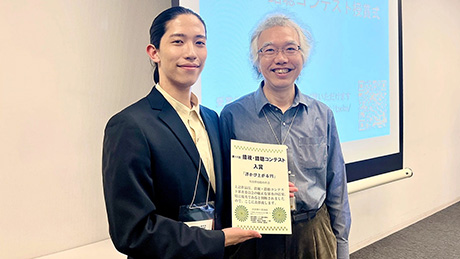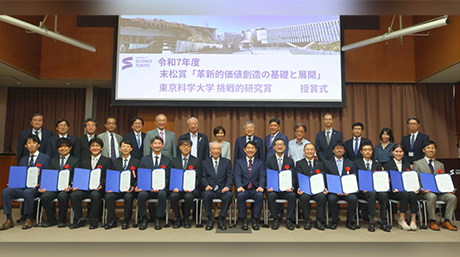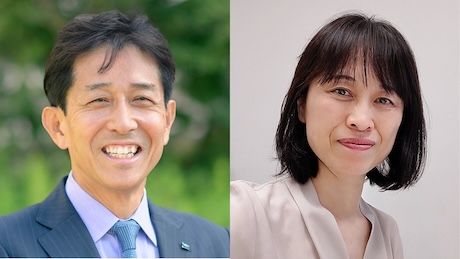Life Science and Technology News
Three students selected as Tokyo Technology Commercialization Program funding recipients
Two teams consisting of three life science and technology students from Tokyo Tech* have received the Gap Fund Judges’ Special Award in the Tokyo Technology Commercialization Program (TTCP), an initiative sponsored by the Japan Research Institute Limited that supports budding entrepreneurs who aim to start a business using technology seeds from universities or other institutions. Second-year master’s student Ryuhi Sato and third-year doctoral student Nodoka Chiba from the Yamada Laboratory, and second-year master’s student Ayumi Koyama from the Matsuura Laboratory were confirmed as recipients after pitching their ideas at the TTCP’s interim presentation and gap fund review meeting on September 30.
* Tokyo Medical and Dental University and Tokyo Institute of Technology merged on October 1, 2024, to form Institute of Science Tokyo (Science Tokyo).
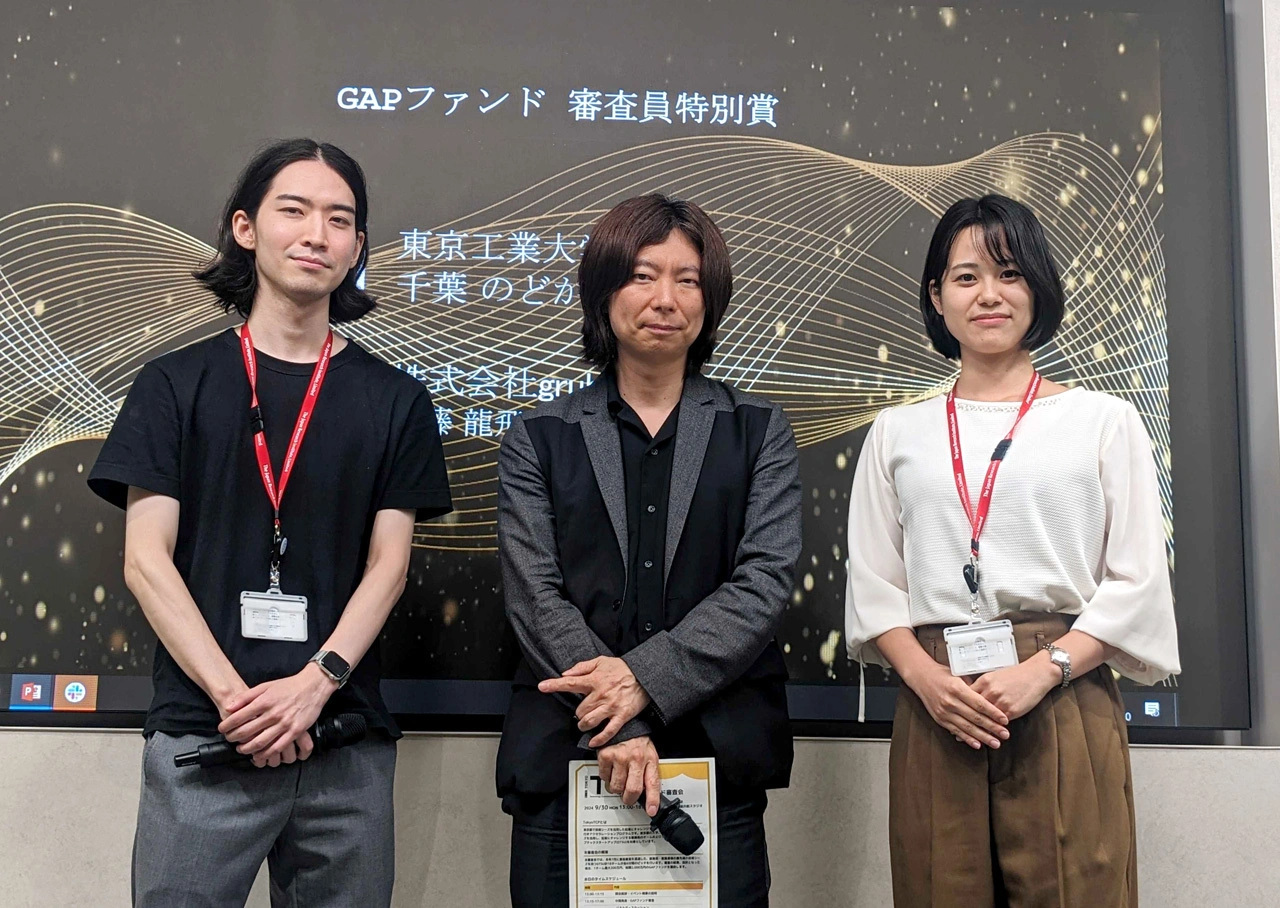
Gap Fund Judges’ Special Award winners Sato (left) and Chiba (right)
Acceleration programs are designed for startups, small and medium-sized businesses, and entrepreneurs to grow their businesses in a short period of time, and to verify and scrutinize business ideas and new businesses through regular meetings with supporters, known as accelerators.
TTCP provides gap funding to seed-stage and early-stage deep tech startups, as well as teams that aim to leverage technology seeds from universities, research institutions, companies, or other organizations in Tokyo. Eighteen teams that passed the application screening in July gave six-minute pitches at the interim presentation and gap fund review meeting in late September.
Sato proposed the creation of a competition platform that solves the issues of human resources and data utilization in the bio-AI area. The interaction between biotechnology and AI is attracting attention throughout the world, and the Japanese government has also identified it as a priority area. However, due to the high degree of specialization required and the difficulty in visualizing relevant skills among candidates, matching between companies and potential employees is poor. Consequently, due to the lack of suitable professionals, relevant data is not being fully utilized.
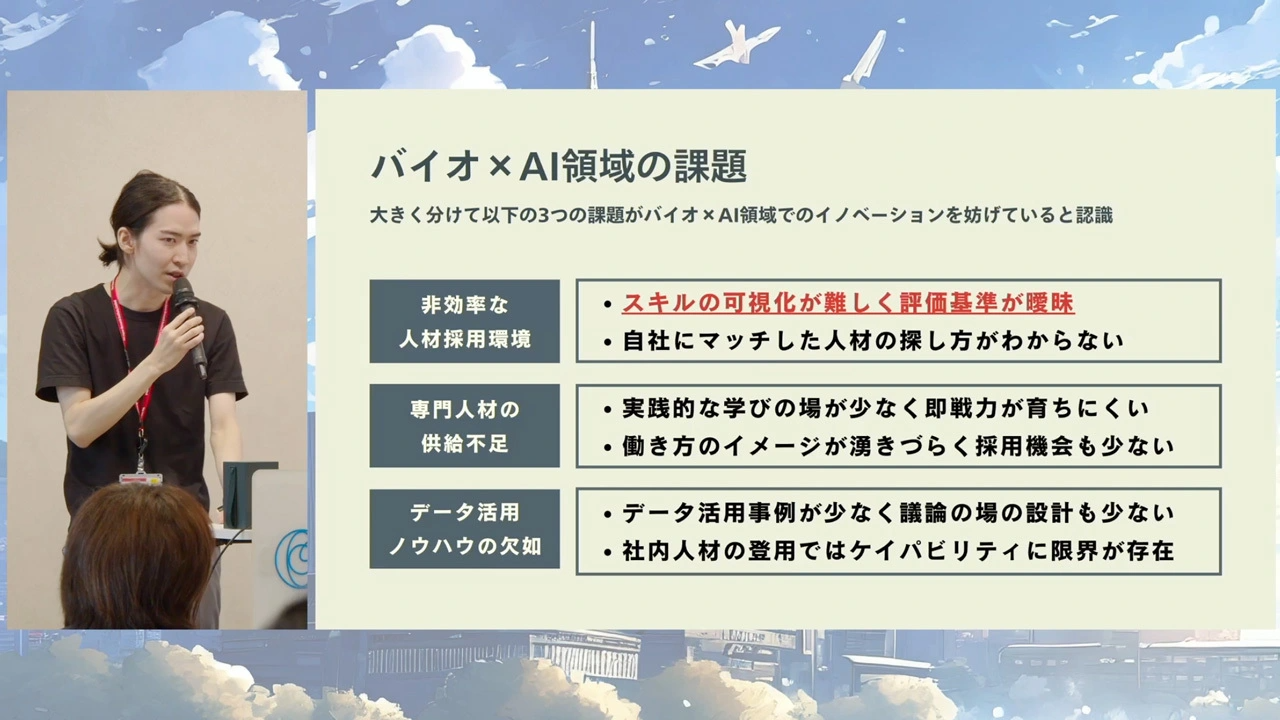
Sato explaining his idea to solve issues at intersection of biotechnology and AI
Sato’s solution is a project to build a competition platform where participants compete to develop large-scale AI. AI development for a given task would enable the ranking of participants based on evaluation indices, and professionals with specific skills would become more visible. Sato’s idea also includes AI development through competitions which could be conducted in parallel to the project.
grubio Co., Ltd., a company launched by Sato, is also involved with the bio-healthcare/AI community. The young entrepreneur aims to deepen collaboration with this community, and as a result, grow his own business. Open to both students and working professionals, the community works to achieve two missions in the bio/healthcare field: a) exchange of researchers across disciplines and b) bridging and circulation of talent and resources between academia and industry.
During her pitch, Chiba presented a proposal focused on the creation of personalized meals that are good for the gut. The Yamada Laboratory, where Chiba is based, conducts research to elucidate the relationship between intestinal bacteria, diseases, and health. Chiba’s winning business idea is an application of the lab's research seeds. It is based on the fact that a certain number of people have a body constitution that results in excessive abdominal pain when exposed to sugar alcohols and gastrointestinal problems with certain foods. Recent studies have shown that the intestinal environments of those who suffer from these disorders have particular characteristics.
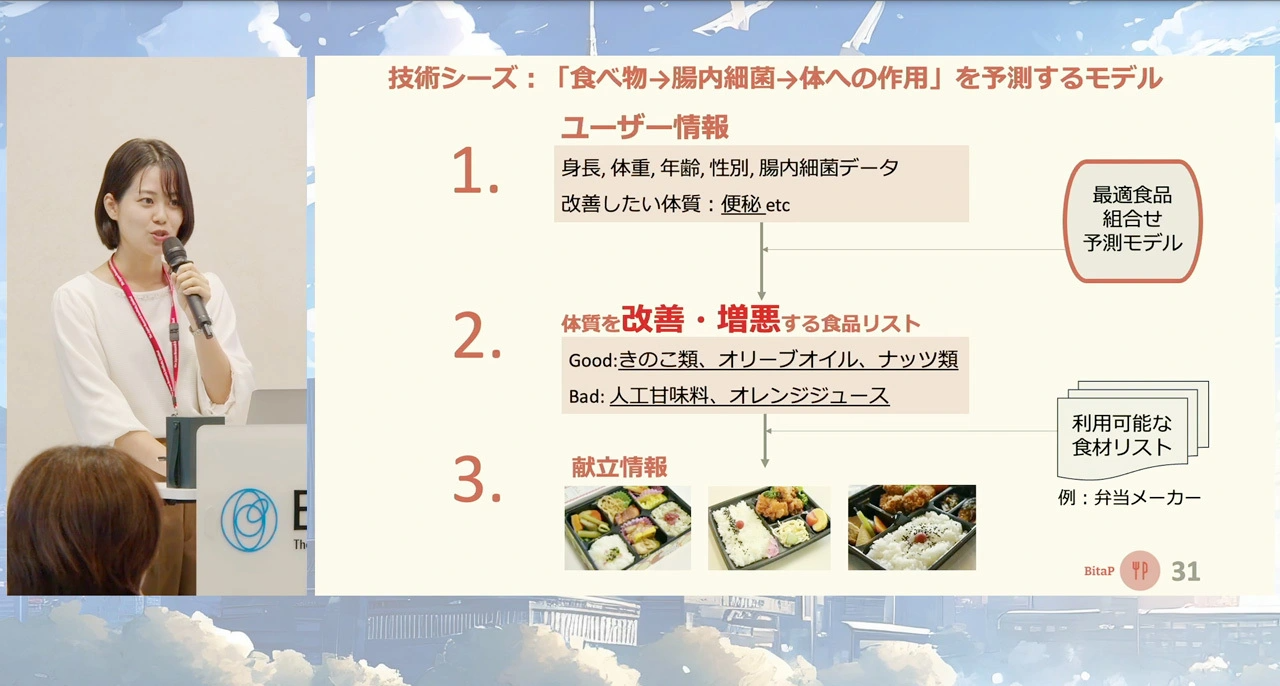
Chiba explaining her ideas to create healthier customized diets
Chiba's idea aims to solve these issues that hinder people’s enjoyment of food through personalized diets that suit specific intestinal environments. Her team, BitaP, has built a unique database from data on foods and their globally researched effects on intestinal bacteria. The team’s strength lies in its system for creating customized meals that take into account these bacteria. During her pitch, Chiba received positive feedback on “lunchboxes good for the gut” that were created using this system and then test-marketed potential customers.
Comments from award recipients
Ryuhi Sato
2nd-year master’s student, Life Science and Technology
With the help of this gap fund, I hope to conduct Minimum Viable Product (MVP) verification in my project and realize a future in which the biotech industry in Japan can develop further.
Nodoka Chiba
3rd-year doctoral student, Life Science and Technology
I would like to use this gap fund to make progress with demonstrations and needs assessments while aiming for a world in which we can not only enjoy our food but also improve our health.
Related articles
- Yamada Laboratory (Japanese)
- Matsuura Laboratory
- Department of Life Science and Technology, School of Life Science and Technology
- Tokyo Technology Commercialization Program (Japanese)
- grubio, Co., Ltd. (Japanese)
- BitaP (Japanese)
- Innovation design Platform
Contact
Yamada Laboratory
Department of Life Science and Technology, School of Life Science and Technology
